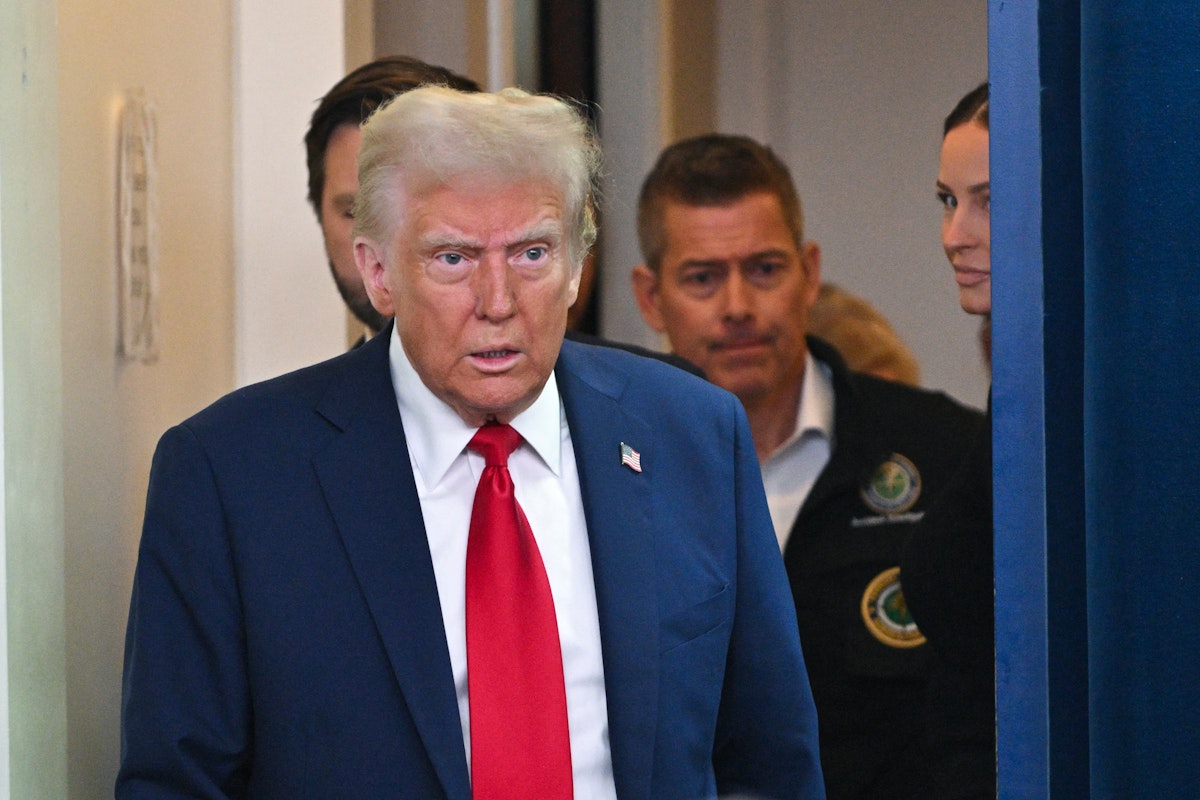ProPublica is a nonprofit newsroom that investigates abuses of power. Sign up to receive our biggest stories as soon as they’re published.

Why this nonprofit made a $1.2 million decision to reject federal funding under Trump
May 7, 2025
Trump Is Destroying the Data that Keeps the Country Running
May 7, 2025Last month, a Department of Government Efficiency aide at the nation’s consumer watchdog agency was told by ethics attorneys that he held stock in companies that employees are forbidden from owning — and was advised not to participate in any actions that could benefit him personally, according to a person familiar with the warning.
But days later, court records show, Gavin Kliger, a 25-year-old software engineer who has been detailed to the Consumer Financial Protection Bureau since early March, went ahead and participated in mass layoffs at the agency anyway, including the firings of the ethics lawyers who had warned him.
Experts said that Kliger’s actions, which ProPublica first reported on last week, constitute a conflict of interest that could violate federal criminal ethics laws. Such measures are designed to ensure that federal employees serve the public interest and don’t use their government power to enrich themselves. At the CFPB, which regulates companies that provide financial services, there are strict prohibitions on the investments that employees can maintain.
As ProPublica previously reported, Kliger owns as much as $365,000 worth of shares in Apple Inc., Tesla Inc. and two cryptocurrencies, according to his public financial report. Investments in those businesses are off limits to employees since the bureau can regulate them. A further review now shows that he’s invested in even more companies that are on the agency’s “Prohibited Holdings” list. Kliger also disclosed owning as much as $350,000 worth of stock in Google parent Alphabet Inc., Warren Buffett’s Berkshire Hathaway and the Chinese e-commerce company Alibaba.
That means, at a maximum, Kliger could own as much as $715,000 of investments in seven barred companies, the records show.
Experts said a defanged and downsized consumer watchdog is unlikely to aggressively regulate those and other companies, freeing them of compliance costs and the risk associated with examinations and enforcement actions. That in turn could boost their stock prices and benefit investors like Kliger.
Don Fox, a former general counsel of the independent federal agency that advises executive branch workers on their ethical obligations, said that “this looks like a pretty clear-cut violation” of the federal criminal conflict-of-interest statute.
Richard Briffault, a government ethics expert at Columbia Law School, said the fact that Kliger was warned not to take any actions that could benefit him personally showed that “he’s on notice that this is a problem, as opposed to doing this by accident, or unintentionally.”
But Briffault said there would likely be no recourse for Kliger’s actions given that the Department of Justice under President Donald Trump has “greatly deprioritized public integrity, ethics and public corruption as issues for them.” The New York Times reported last week that the section handling such cases is down to just a handful of lawyers.
From the outset, the Trump administration has been dogged by ethics controversies, from the president’s own foray into the cryptocurrency industry to Elon Musk’s dual roles as both the head of DOGE and a major federal contractor. Kliger’s case is “a nice illustration of how even on this micro level, they are violating the law, acting in ways that positively should cause people to not trust what they’re doing because there is no question that these corporations will benefit,” said Kathleen Clark, an expert on government ethics at Washington University in St. Louis.
Kliger hasn’t returned a phone call or email seeking comment. The CFPB didn’t respond to a request for comment.
The White House didn’t answer questions about the warning, whether Kliger had sought ethics waivers or if he was in the process of divesting. Instead, a spokesperson provided ProPublica the same statement it previously had, writing that Kliger “did not even manage” the layoffs, “making this entire narrative an outright lie.” A spokesperson said that Kliger had until May 8 to divest.
The April 10 ethics warning came amid a heated legal battle over the future of the CFPB.
The following day, an appeals court in Washington, D.C., allowed the agency’s acting director, Russell Vought, to implement mass firings after a lower court judge had stayed them. The court instructed Vought to conduct a “particularized assessment” of the bureau and to lay off only those employees who were deemed to be “unnecessary” to perform the agency’s statutorily required duties. In court filings, the government has said that review was done by the bureau’s chief legal officer, Mark Paoletta, and two other attorneys. In court papers, Paoletta has said the cuts are designed to achieve a “streamlined and right-sized Bureau.”
On April 13, Kliger was among a small team of DOGE and agency officials who received an email from Vought about the coming layoffs with the subject line “CFPB RIF Work” — government parlance for reduction in force, according to emails produced in court records. Vought’s email is redacted in the filing, but hours after he sent it, records show the bureau’s chief information officer wrote to Kliger and another DOGE aide regarding a “follow-up on Russ’s note below” and advised Kliger that he’d been granted access to agency computer systems that “should allow you to do what you need to do,” according to the email.
Layoff notices to more than 1,400 bureau employees went out on April 17.
In the preceding 36 hours, “Gavin was screaming at people he did not believe were working fast enough” to get the notices out and “calling them incompetent,” a federal employee on the layoff team using the pseudonym Alex Doe wrote in sworn declaration filed by lawyers for unionized employees trying to stop the administration from dismantling the bureau.
Among those laid off were the agency’s ethics officer and their “entire team” of lawyers, according to court records.
Those are the very employees who’d twice notified Kliger that he was required to identify any investments in companies on the bureau’s Prohibited Holdings list. The warning last month explicitly instructed him not to participate in any bureau activity that could benefit the businesses whose stocks he owned, said the person familiar with the notice, who spoke on condition of anonymity because of its sensitivity.
Last week, the appeals court reversed course and temporarily stopped the firings at the CFPB amid a flurry of legal challenges. Agency officials then notified the more than 1,400 fired employees who’d been told they were being let go that the pink slips were being rescinded.
The court battle over the CFPB’s future is ongoing, though, with oral arguments before appellate judges in Washington, D.C., scheduled for later this month.
Great Job by Jake Pearson & the Team @ ProPublica Source link for sharing this story.






